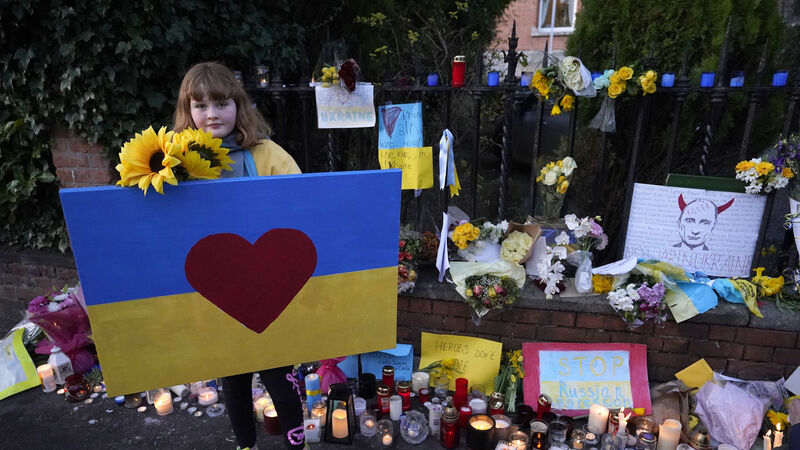Mick Clifford: What happens when compassion runs dry?

Tessa May Stewart Miller, 11, at a vigil outside the Ukrainian embassy in Dublin over the Russian invasion of Ukraine. The widespread, genuine compassion for fellow Europeans being killed or fleeing for their lives has been manifest right across society.















